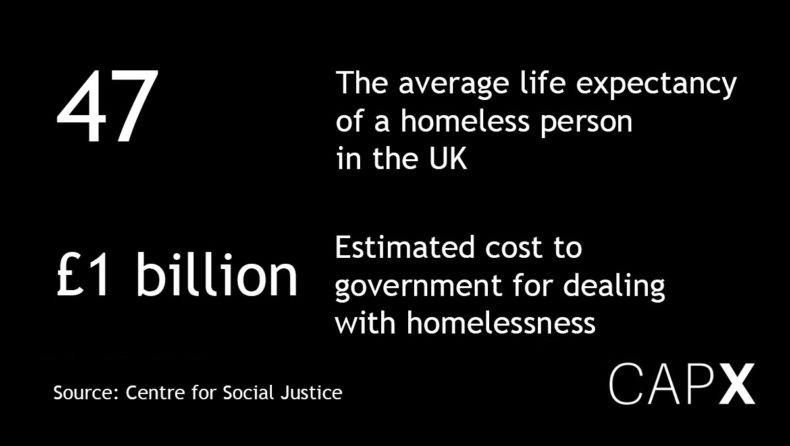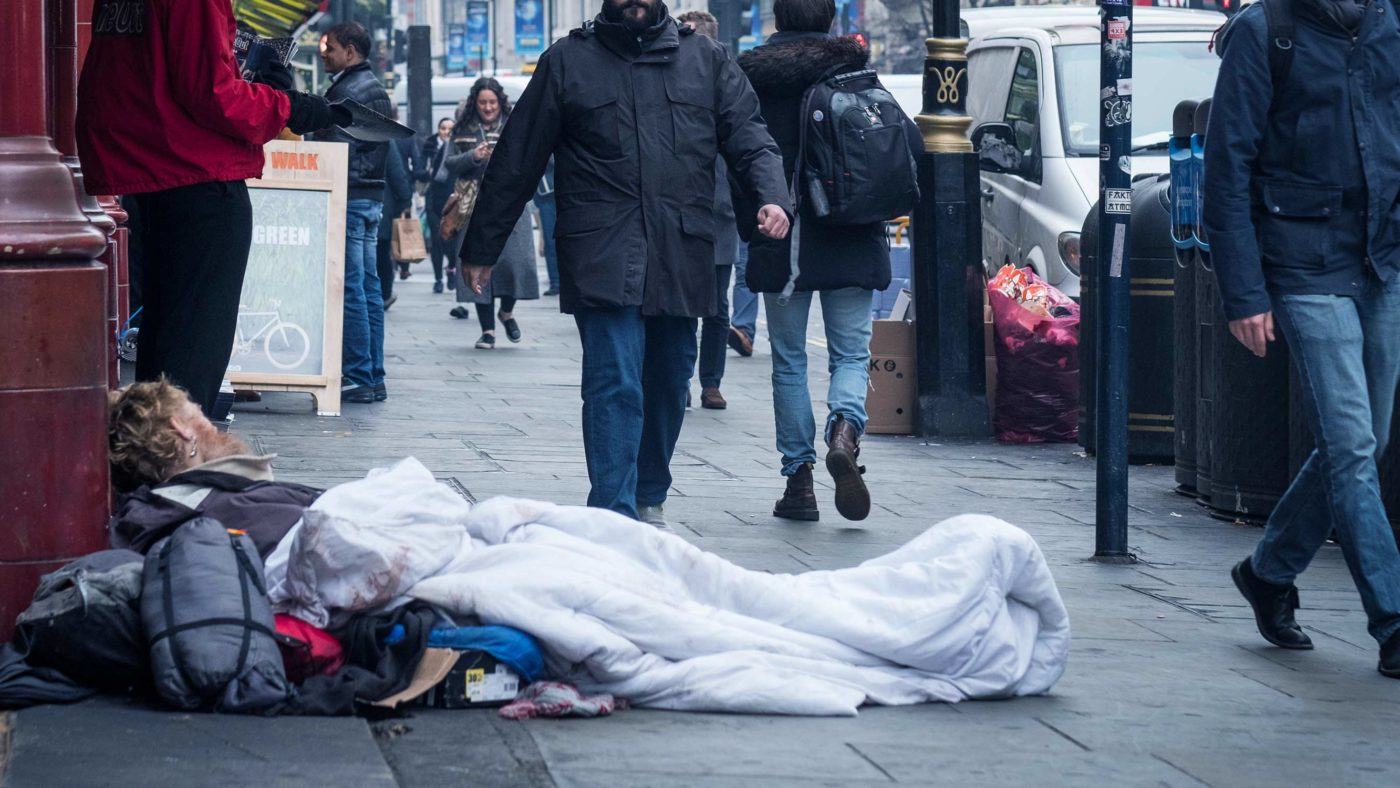Homelessness is a problem which continues to blight England. New figures released today show that last year, 4,134 people slept rough across England on any given night – a 16 per cent increase compared to the previous year.
Homelessness is a devastating experience, and arguably the most acute form of poverty. The average age of death for a homeless person is only 47 years old. Without a secure home, people struggle to maintain employment or provide the environment that will help their children to flourish. Prolonged periods of homelessness can trigger or exacerbate existing vulnerabilities, such as substance misuse and mental health conditions, which destabilises family and support networks.

A secure, settled and suitable home is fundamental to the life chances of the poorest in society. And it also saves the public money. The Government has estimated that the annual gross cost of homelessness to the state is up to £1 billion. This figure includes additional costs incurred by social services, the criminal justice system, mental and physical health services.
Research commissioned by Crisis has estimated that, if 40,000 people were prevented from experiencing one year of homelessness, public spending would fall by £370 million. That’s based on an average estimated cost of £9,266 per person per year.
Tackling homelessness, in other words, must be a crucial feature in this Government’s social reform agenda. Indeed, historically, England has often led the way with regards to cutting homelessness – but this is clearly an area that we are slipping behind on.
But the good news is that, while rising levels of homelessness are of significant concern, the numbers are still very manageable – particularly with regards to rough sleeping. This is a resolvable issue: indeed, with strong enough political will, this Government could end rough sleeping completely.
The Government’s support for Bob Blackman’s Private Member’s Bill already marks a significant step forward. The Bill calls on ministers to introduce a new duty for local authorities to intervene earlier, and to help applicants find accommodation.
If this legislation passes, it could mean that thousands more people receive support and assistance at an earlier point.
And in March, we at the Centre for Social Justice will be launching a report which will present politicians with a roadmap to better prevent and tackle homelessness.
Over the past nine months, we have travelled the globe and found some fantastic international models that England could draw on to help end rough sleeping and tackle chronic homelessness.
There is overwhelming evidence, for example, to support the use of Housing First as a solution for people who have complex and multiple needs, and for whom the traditional hostel system has failed. Housing First provides stable, independent homes alongside coordinated, wraparound personalised support. A key worker helps participants to gain access to much needed mental health services, drug and alcohol support, as well as training and employment.
Widely adopted across North America and western Europe, Housing First has formed a central component of strategies in Canada, Denmark, Finland and France to stem rising homelessness, or even reduced it. The high tenancy sustainment rates, improved health and wellbeing outcomes and significant savings to the public purse provide a compelling argument for scaling up this approach in England.
So while today’s figures are a cause for very serious concern, homelessness in England is a fixable problem. We already have fantastic legislation currently going through Parliament, which could prevent thousands more people ever reaching crisis point in the first place – and save the Government hundreds of thousands of pounds every year. Combining this work with a robust strategy to end homelessness, of the kind our report will suggest, will help put an end to a devastating experience that too many people go through.


